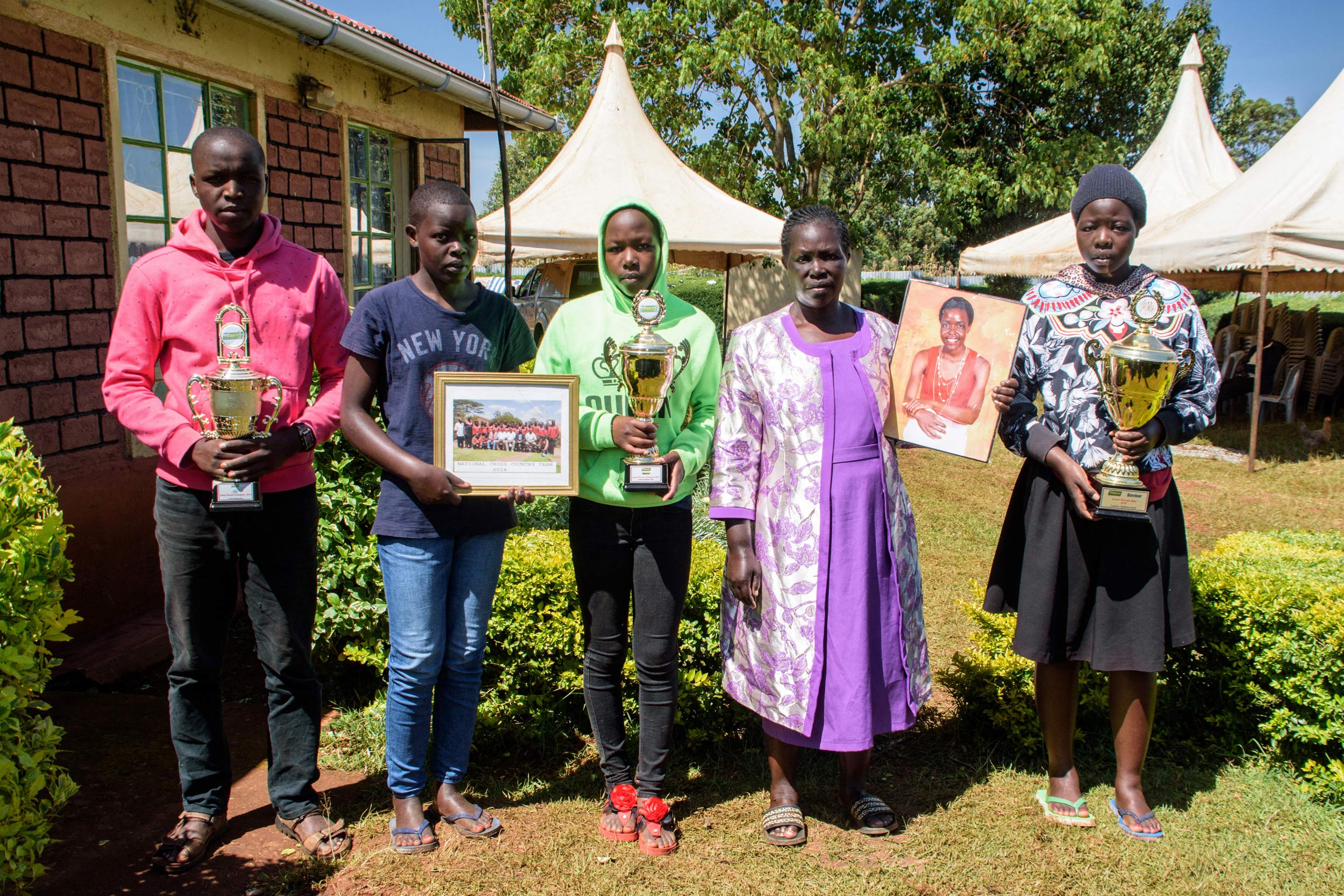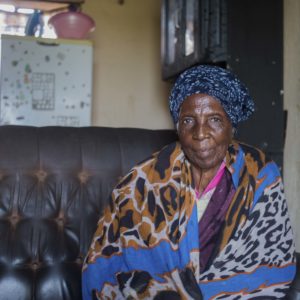Agnes Tirop’s blossoming cut short by brutal murder
Like so many victims of domestic and gender-based violence, the star Kenyan road runner was killed in her home, robbing her of what seemed like a rosy future in world athletics.
Author:
20 October 2021

There is no doubt that Agnes Jebet Tirop, 25, the late Kenyan long-distance runner and Olympian who competed in the 1 500m, 5 000m, 10 000m and cross-country events, was headed for stardom. She had a meteoric rise to the top of road running, which climaxed with her setting a new world record in the women-only 10km race in Germany in September.
Her immense talent and brilliance saw Tirop enjoying success as both a junior and senior athlete. As the former, she won a bronze medal in the 5 000m at the IAAF World Junior Championships in Athletics in 2012 and 2014. A year later, at the age of 19, she became the second youngest gold medallist in the history of the women’s race at the IAAF World Cross Country Championships, after Zola Budd of South Africa.
Tirop made her Olympics debut at the 2020 Games in Tokyo, where she finished fourth in the women’s 5 000m final. She had proverbially climbed the Iroko tree, which grows an average of 50m tall, and only needed to hang on to savour more success in the world of long-distance athletics. Her compatriot Julius Yego, who won the silver medal in javelin at the 2016 Rio Olympics, described her as “a strong woman committed to what she was doing”.
When she broke the 10 000m record at the Adizero Road to Records running festival in Herzogenaurach, Germany, Tirop said: “This is a good start as we start a new season.”
Related article:
That promise of a glittering future, however, will forever remain just that. Her lifeless body, with several stab wounds, according to the police, was discovered on her bed in Iten, in western Kenya, on 13 October. Iten lies in the Rift Valley and is the world’s go-to place for training camps for long-distance runners.
“If I tell you how her body looks, you will tear [up] … such a cruel, tragic death. It hurts,” is how Michelle Katami, a BBC journalist, described the scene.
The news of Tirop’s gruesome killing hit the nation and world of athletics hard. In a statement, President Uhuru Kenyatta ordered the security apparatus to move with speed to arrest and bring to justice those involved.
“It is unsettling, utterly unfortunate and very sad that we’ve lost a young and promising athlete who, at a young age of 25 years, had brought our country so much glory through her exploits on the global athletics stage, including in this year’s 2020 Tokyo Olympics where she was part of the Kenyan team in Japan,” Kenyatta said.
“It is even more painful that Agnes, a Kenyan hero by all measures, painfully lost her young life through a criminal act perpetrated by selfish and cowardly people.”
Prime suspect found
More tributes poured in as the search for the killer escalated. “Kenya has lost a jewel,” Athletics Kenya said in a statement. “She was one of the fastest-rising athletics giants on the international stage thanks to her eye-catching performances on the track.” World Athletics president Sebastian Coe said that the sport had “lost one of its brightest young stars in the most tragic circumstances”.
A day after Tirop’s body was found, the prime suspect in the murder, her husband Ibrahim Rotich, was arrested in the coastal town of Mombasa as he allegedly tried to flee the country in a private vehicle. Rotich hit a commercial vehicle along a busy highway, causing a heavy traffic jam and setting himself up for arrest and a possible life-long stay in prison.
Reuters reported that he appeared before a court in Iten, close to the home they shared, on Monday 18 October. He would be remanded in custody for 20 days for the police to complete their investigation and for tests to ensure he is mentally competent to stand trial.

Tirop’s younger sister, Everline Chepng’etich, painfully narrated how two days before the athlete was killed, Rotich had allegedly attacked her in the wee hours of the morning, leaving her terrified and with a swollen cheek. “I received a distress call from Agnes begging me to come save her,” said Chepng’etich.
She forced her way into the house on arrival as the door was locked and found Rotich bare-chested and wielding a rungu (club). “I asked him, ‘Why are you hurting this innocent lady?’ But instead of stopping, he slapped Agnes, who stumbled to the floor, hitting her cheek on a music system. The cheek was swollen,” said Chepng’etich.
“I stayed with her on that day [Monday], but left for Kapsowar [a nearby town] the next day. Ibrahim called to tell me I shouldn’t return to the house but instead head home to my parents, as they were planning to leave for Nairobi.”
As it turned out, Chepng’etich would not see her sister again.
Cultural taboos
Their distraught father, Vincent Tirop, told the media that though Ibrahim lived with his daughter, he had never sought the family’s blessing to marry her, as tradition requires. Instead, in 2016, while Tirop was at Moi University Secondary School, he had eloped with her.
The Kalenjin community, which produces most of Kenya’s long-distance runners, including Tirop, is culturally reserved and treats domestic issues as a private matter. Still, there’s hope for increased action and awareness of gender-based violence owing to the public attention on Tirop’s murder.
“Agnes’ death could ignite more debate around gender-based violence in the country, but I don’t think we’re going to see athletes come out openly to be part of it for cultural reasons,” said Kenyan sports journalist James Wokabi.
Related article:
According to Easter Okech, executive director of the non-governmental Kenya Female Advisory Organization, gender-based violence is rarely a once-off event but instead “occurs over time”.
“It does not start with the physical violence,” she said. “Victims undergo a lot more, including emotional abuse, before it reaches that stage.”
Okech cited “cultural biases” and a “lack of a support network” as some of the reasons for victims of domestic violence staying in abusive relationships. “Some law enforcers are culturally biased when it comes to domestic violence,” Okech said.
“In some instances, cases are reported, but they get dismissed as mere family affairs that should be resolved at home and are not treated as criminal offences. Those who report some of these cases are accused of soiling the name of the family.”


